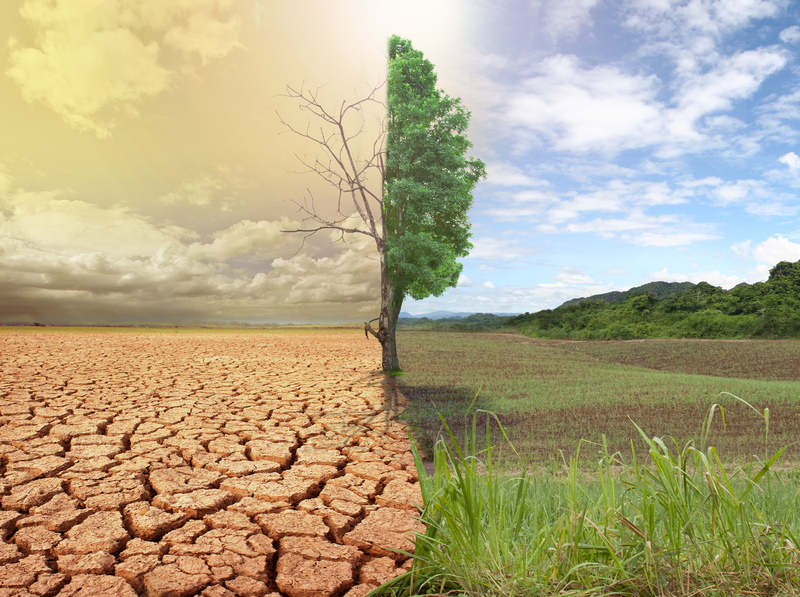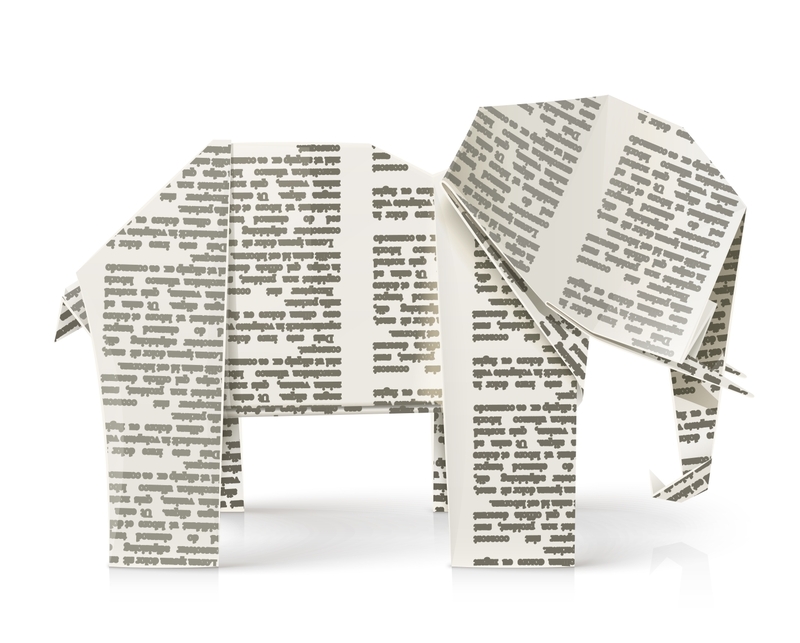Optimizing Home Efficiency with Savvy Waste Prevention
In today's eco-conscious world, optimizing home efficiency is more than just a trend--it's a smart way to save money, reduce our environmental impact, and create healthier living spaces. One of the key strategies in reaching this goal is through waste prevention at home. By taking a savvy approach to how we use, reuse, and dispose of resources, households can dramatically improve their overall efficiency. In this comprehensive guide, we'll explore innovative ideas and practical tips for home energy efficiency and savvy waste reduction, equipping you to make impactful changes in your daily life.

Why Focus on Home Efficiency and Waste Prevention?
Today's modern homes consume considerable energy and often generate unnecessary waste, leading to a significant carbon footprint. By optimizing home processes and preventing waste, homeowners can:
- Reduce utility costs and save money
- Promote sustainable living habits
- Increase the resale value of their property
- Contribute to a healthier environment
Understanding Home Waste: Where Does It Come From?
To effectively optimize household efficiency with savvy waste prevention, it's vital to identify common sources of waste:
- Food waste: Spoiled produce, leftovers, and over-purchasing
- Plastic and packaging: Excessive containers, single-use plastics
- Energy waste: Inefficient appliances, unnecessary lighting
- Water waste: Leaky faucets, inefficient fixtures
- Paper waste: Junk mail, unnecessary printing, packaging
*By recognizing these sources, homeowners can implement targeted strategies for optimizing efficiency at home while reducing their waste output.*
Top Strategies for Optimizing Home Efficiency & Preventing Waste
1. Embrace the 4 R's: Reduce, Reuse, Recycle, and Rethink
These four principles lie at the core of efficient waste prevention:
- Reduce: Cut down on what you consume and only buy what you really need.
- Reuse: Find ways to repair and repurpose items instead of discarding them. For example, glass jars can be repurposed for storage.
- Recycle: Sort your waste correctly and support recycling programs in your community for paper, plastic, metals, and glass.
- Rethink: Evaluate your daily habits--can you choose digital bills instead of paper or bring your own bag when shopping?
2. Smart Technology for Optimal Home Efficiency
Investing in smart home technology can bring instant returns in energy efficiency and waste prevention:
- Smart thermostats: Automatically adjust temperatures for maximum comfort and minimum energy use.
- LED lighting: Replacing incandescent bulbs with LEDs can reduce electricity consumption substantially.
- Water-saving fixtures: Low-flow showerheads, dual-flush toilets, and sensor faucets minimize water waste.
- Home automation: Timers and motion sensors for lights, smart outlets, and appliance scheduling ensure energy isn't wasted.
3. Reduce Food Waste with Savvy Planning and Storage
Food waste is a major hurdle in home efficiency. Here are steps to tackle it:
- Plan meals ahead and make shopping lists to avoid impulse buys.
- Practice FIFO (First-In-First-Out) in your pantry and fridge, so older items get used first.
- Use airtight containers to extend shelf life and cut down spoilage.
- Compost organic waste: Turn kitchen scraps into nutritious soil for your garden.
- Repurpose leftovers in creative ways--think soups, stir fries, or casseroles!
4. Eliminate Single-Use Items and Packaging
Switching to reusable products makes a considerable difference in achieving optimal home efficiency:
- Opt for a water filter and reusable bottles instead of buying bottled water.
- Bring reusable bags for groceries and shopping trips.
- Use cloth napkins, towels, and mop heads rather than disposable varieties.
- Purchase in bulk where possible to minimize packaging waste.
5. Conserve Water Through Daily Habits
Water is a precious resource, and conserving it is key to both efficiency and waste reduction:
- Fix leaks promptly and monitor water usage.
- Install rain barrels to capture and reuse water for gardening.
- Run dishwashers and washing machines only with a full load.
- Take shorter showers, and turn off the tap while brushing teeth or shaving.
6. Optimize Energy Use for Better Efficiency
Energy waste affects both the environment and your wallet. Adopt these tips for boosting energy efficiency at home:
- Seal gaps and insulate to prevent heat loss in winter or cool air escape in summer.
- Upgrade to Energy Star appliances known for their efficiency.
- Unplug electronics and chargers when not in use to reduce phantom power.
- Take advantage of natural light during the day and minimize unnecessary artificial lighting.
7. Green Cleaning: Eco-Friendly & Efficient
Many commercial cleaners are packed with chemicals and wasteful packaging. Instead:
- Make your own cleaners from simple ingredients like baking soda, vinegar, and lemon.
- Reuse spray bottles and cleaning cloths.
- Buy concentrates or refills rather than single-use bottles.
The Financial and Environmental Benefits of Waste Prevention
Implementing household efficiency strategies goes beyond just environmental good--it makes economic sense:
- Lower utility bills: Efficient energy and water use translates directly into monthly savings.
- Reduced food bills: Smart meal planning, proper storage, and composting cut grocery costs.
- Less frequent shopping: Durable and reusable products mean fewer purchases (and less wasteful impulse buying).
- Smaller landfill footprint: Less waste generation eases strain on local landfills and recycling centers.
Involving Your Family in Home Efficiency Improvements
Optimizing your home's efficiency is most successful when everyone participates. Here are ways to make waste prevention a family affair:
- Set up clear, labeled bins for recycling and composting.
- Share responsibility for turning off lights, unplugging devices, and closing doors.
- Hold regular "waste audits" to identify improvement areas together.
- Celebrate successes--track your reduced utility bills or waste output and mark milestones!
*Creating a culture of mindful consumption and environmental awareness fosters lifelong eco-friendly values in children.*
Upcycling and Creative Reuse: Stylish and Sustainable
Upcycling is the process of transforming waste or unwanted items into useful and often beautiful new products. This trend lets you optimally reduce home waste while adding unique personality to your space.
- Turn worn-out clothes into cleaning rags or patchwork quilts.
- Repurpose old furniture with a coat of paint or new hardware.
- Use mason jars for creative storage, vases, or terrariums.
- Transform shipping pallets into stylish outdoor furniture or shelving.
The possibilities are endless, and you'll be amazed how upcycled pieces can spark conversation and admiration!
Tips for Measuring Your Home Efficiency and Waste Output
To make meaningful improvements in home efficiency and waste prevention, it's vital to track your progress:
- Utility bills: Monitor energy and water usage each month and look for trends.
- Waste audits: Periodically catalog what ends up in your trash and recycling bins to see where you can improve.
- Carbon footprint calculators: These online tools help estimate your home's overall environmental impact.
- Smart sensors: Invest in smart home products that give real-time feedback on electricity and water consumption.
Savvy Shopping: Reducing Waste Before It Starts
A huge portion of household waste is generated through the choices we make at the store. Adopting a more mindful approach to shopping can dramatically improve your waste prevention efforts:
- Buy in bulk when feasible to reduce per-item packaging.
- Choose products with minimal, recyclable, or compostable packaging.
- Select durable goods over disposable ones.
- Support local farmers and businesses to minimize transport-related waste and emissions.
- Look for concentrated formulas in cleaning and personal care products.
Building Community and Sharing Resources
Efficiency and waste prevention don't have to stop at your front door. You can amplify your efforts by engaging with neighborhood initiatives:
- Organize or join local tool-sharing cooperatives or swap events.
- Participate in community composting programs or recycling drives.
- Share tips and resources with neighbors to promote collective home efficiency.
When communities collaborate, waste prevention efforts are more effective, and everyone benefits from the shared knowledge and resources.

The Road Ahead: Continual Improvement in Home Efficiency
Optimizing home efficiency with savvy waste prevention is a journey, not a destination. Technology, resources, and eco-friendly practices are continually advancing, making it easier than ever to reduce waste and maximize household efficiency.
- Stay informed about new efficiency standards, products, and tools.
- Re-evaluate your home's processes at least once a year to find new improvement opportunities.
- Encourage your family to innovate and share their own waste-saving ideas.
Conclusion: The Benefits of Savvy Waste Prevention for Home Efficiency
Optimizing home efficiency through intelligent waste prevention brings a multitude of advantages for you, your wallet, and the planet. From cutting down unnecessary consumption to employing energy-saving technology, every step--big or small--counts.
By adopting the strategies outlined here for reducing, reusing, recycling, and rethinking your household habits, you'll enjoy a cleaner, greener, and more cost-effective home. Take the first steps today and watch as your smart decisions bring lasting positive change!
Let your home set the example for smart, sustainable, and efficient living--one savvy waste prevention tip at a time.